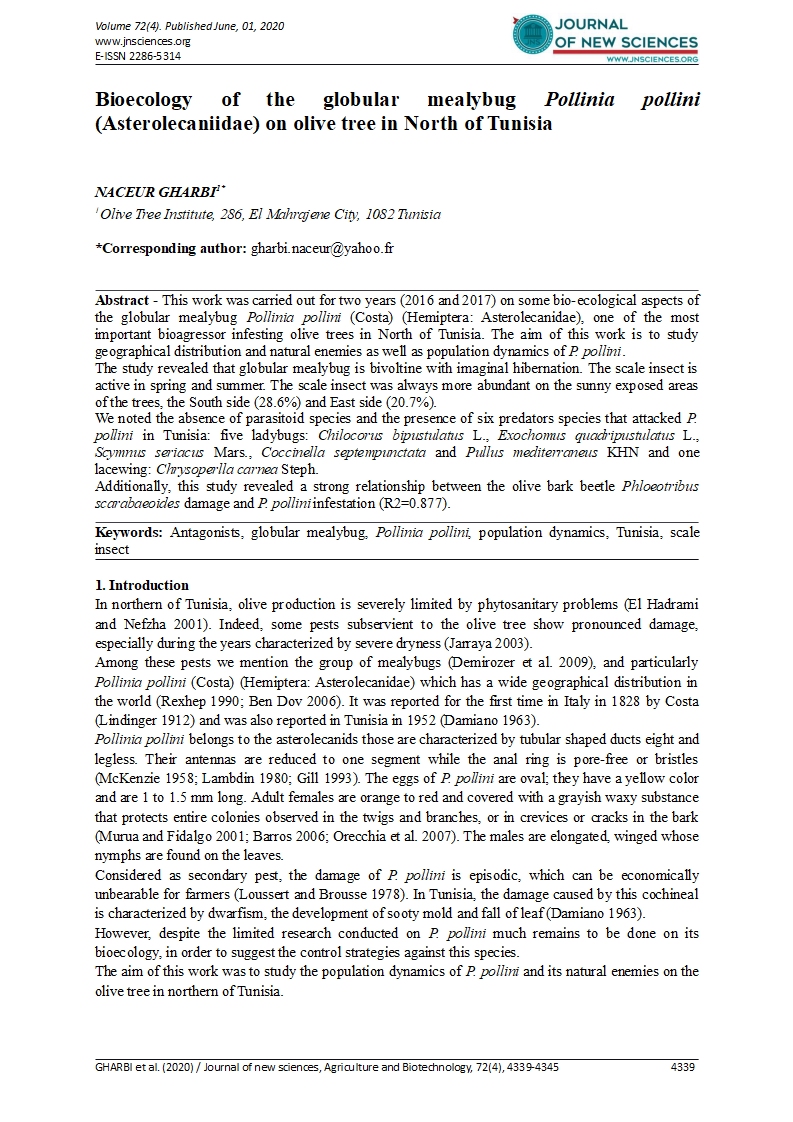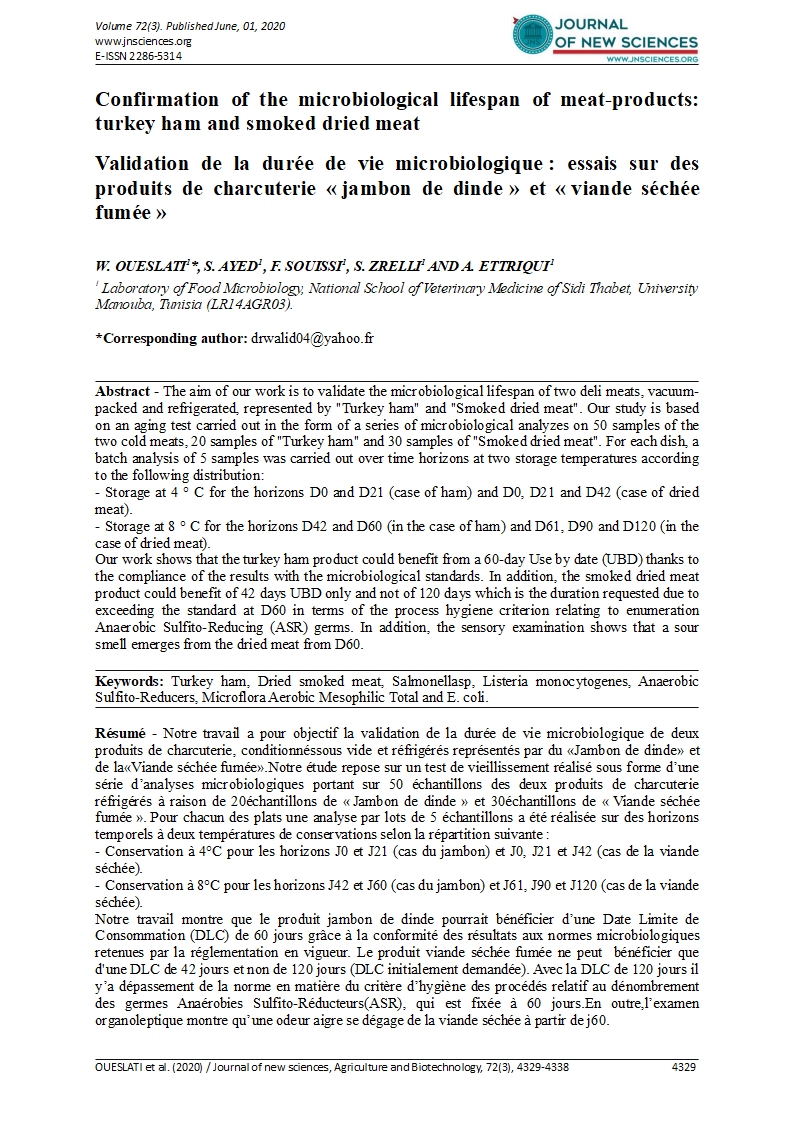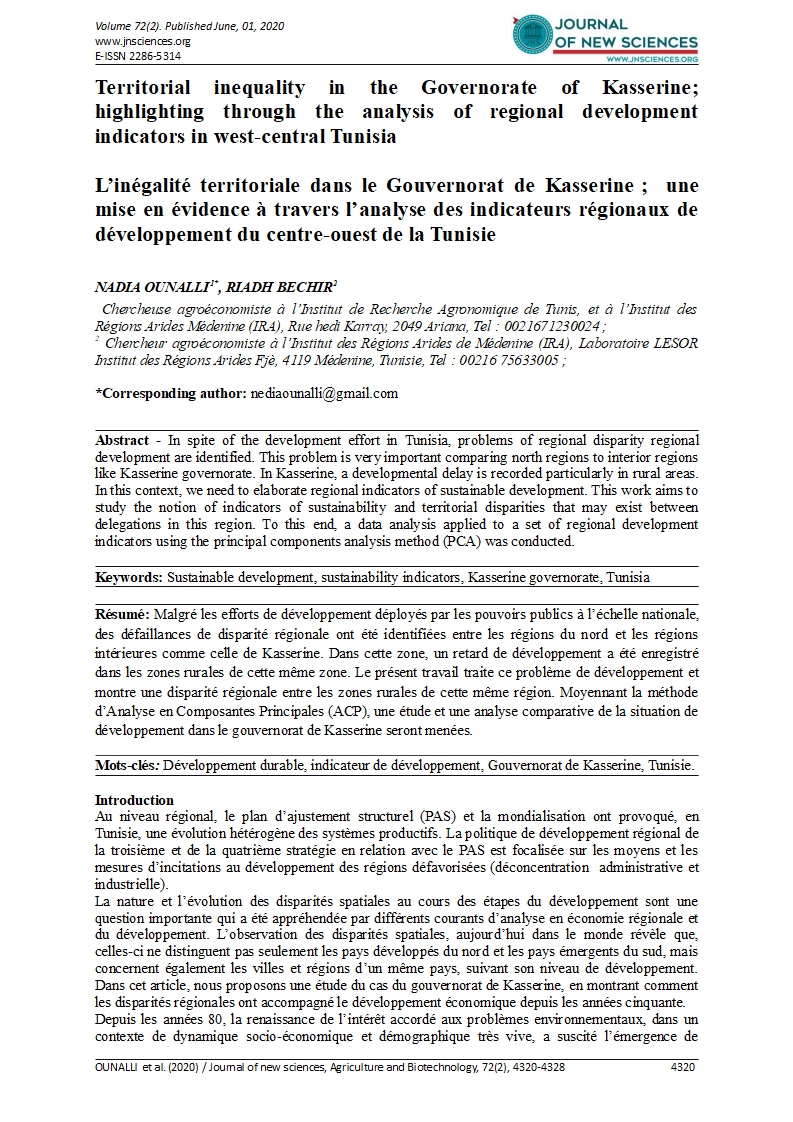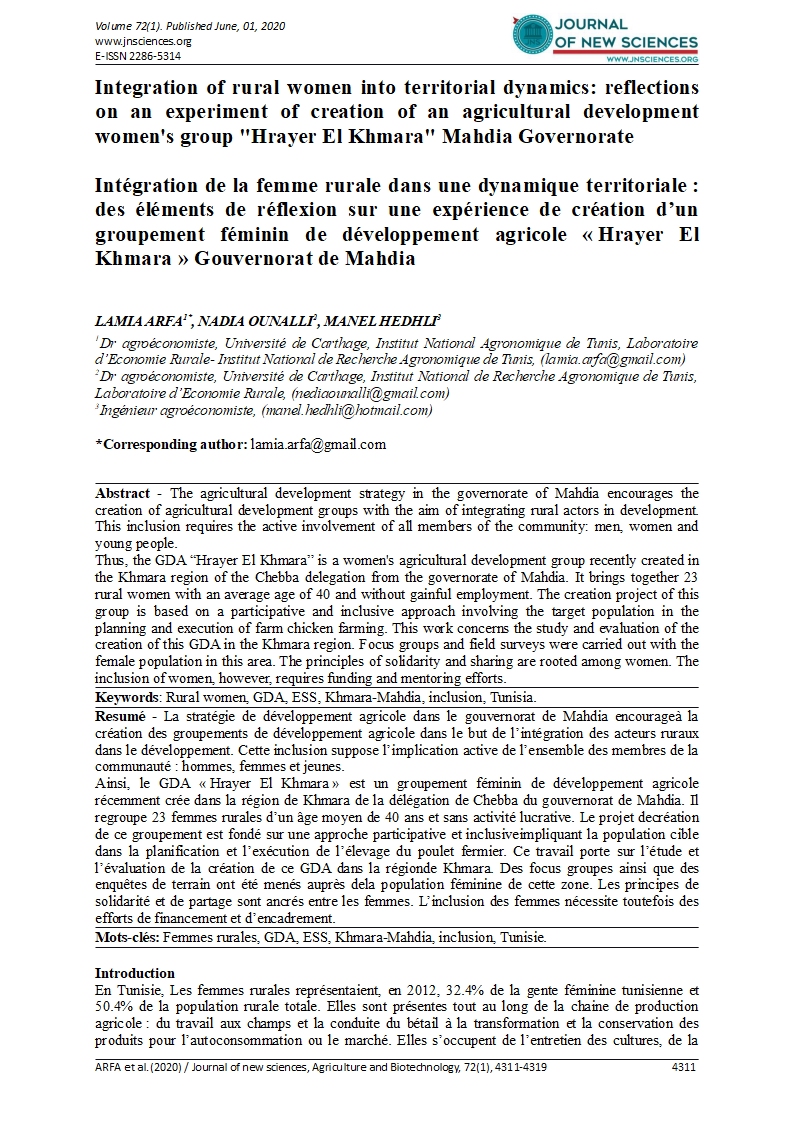- Category: Volume 72
- Hits: 4503
Bioecology of the globular mealybug Pollinia pollini (Asterolecaniidae) on olive tree in North of Tunisia

NACEUR GHARBI1
1Olive Tree Institute, 286, El Mahrajene City, 1082 Tunisia
Abstract - This work was carried out for two years (2016 and 2017) on some bio-ecological aspects of the globular mealybug Pollinia pollini (Costa) (Hemiptera: Asterolecanidae), one of the most important bioagressor infesting olive trees in North of Tunisia. The aim of this work is to study geographical distribution and natural enemies as well as population dynamics of P. pollini. The study revealed that globular mealybug is bivoltine with imaginal hibernation. The scale insect is active in spring and summer. The scale insect was always more abundant on the sunny exposed areas of the trees, the South side (28.6%) and East side (20.7%). We noted the absence of parasitoid species and the presence of six predators species that attacked P. pollini in Tunisia: five ladybugs: Chilocorus bipustulatus L., Exochomus quadripustulatus L., Scymnus seriacus Mars., Coccinella septempunctata and Pullus mediterraneus KHN and one lacewing: Chrysoperlla carnea Steph.
Additionally, this study revealed a strong relationship between the olive bark beetle Phloeotribus scarabaeoides damage and P. pollini infestation (R2=0.877).
Keywords: Antagonists, globular mealybug, Pollinia pollini, population dynamics, Tunisia, scale insect



